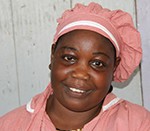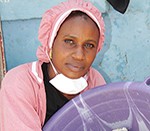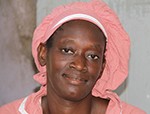News
CORAF is an important organization working to improve food and nutrition security in West Africa. CORAF's recent initiatives are a promising sign of its determination to meet the challenges facing West Africa.
The paradox of Senegal's agro-processors

Published on: 26/11/2018
The inspiring stories of brave women food processors in Senegal. Far from being discouraged by the challenges they face, they have taken their destiny into their own hands, collecting a modest monthly sum for the purchase of raw materials to meet the growing demand for local processed products.
In Pout, around 50 kilometers east of the Senegalese capital, some 2,400 women have organized themselves into an economic interest group (EIG), to seize the new business opportunities offered by the dry cereals value chain. dry cereals and fruit and vegetable value chains.
Armed with their new knowledge and skills acquired through the Senegalese government's support for the ambitious West African Agricultural Productivity Program (PPAAO/WAAPP), these women are on the verge of breaking out of the poverty trap and changing their history as stay-at-home mothers, which is often associated with women in this part of the country.
For years, they have transformed corn, millet, sorghum and wheat into refined local food products such as "Sankhal", "Thiéré" and "Thiakry". The quality of their products has improved, much to the satisfaction of local consumers and wholesalers.
But as demand increases, including from Auchan, one of Senegal's largest food retail chains, the women find themselves unable to meet the demand for local processed products, partly due to a lack of working capital.
"We have orders from Auchan and other major wholesalers," said Awa Diop, president of the women's group.
"Demand is currently outstripping supply," she explains.
"Women want to work. They were trained at theInstitute of Food Technology thanks to PPAAO/WAAPP. They have the capacity and know-how. What's holding us back is a substantial amount of working capital."
Called the Pout micro-entrepreneurs' network, this women's group has rented a processing unit costing around 30,000 FCFA (60 USD) a month. Most of the processing carried out here is artisanal. The women explain that, due to the rising fixed costs associated with commercial activities, they are generating less profit.
"If we owned our own processing unit and equipment, we'd increase our operations and make more money," said Ms. Diop.
Food processors are required to comply with strict hygiene and quality assurance regulations in Senegal. For the time being, the Senegalese government has apparently not yet authorized these women to market their products on a large scale (Absence of FRA authorization).
"This means that most of our women's production is consumed by their households," explains Ms. Diop.
To a certain extent, this limits their clientele," she points out.
While looking for other ways to raise additional capital, the Pout women's group collects a monthly contribution.
"We simply can't wait for others. We have to take our destiny into our own hands. That's why we've given ourselves a monthly donation of 8,000 FCFA (16 USD) to buy the raw materials we need to continue our activities and meet our customers' demands."
The network of women micro-entrepreneurs in Pout is made up of women involved in a number of activities. Some are active in sewing, livestock breeding and onion and tomato production. By diversifying their activities, the women are able to reduce risk and generate greater profits.
The PPAAO Senegal has funded training and capacity-building for the women of Pout, as well as others across the country, in a number of areas. These include good practices in mango processing, maintaining good hygiene in fruit processing, financial management, finding market opportunities, nutrition of key products and packaging.
PPAAO invested 3 million FCFA (6,000 USD) in this women's group in 2017. Since then, say program experts, significant changes have been observed in the activities and lives of those involved. PPAAO maintains that some of the real benefits, which are not necessarily monetary, concern the development of women's capacities.
They said:
Before joining the women's group, I was a stay-at-home mom who didn't do anything. But since becoming a member, not only have I increased my knowledge and ability to process and package cereals, but I also know how to make bleach.
 Ciss, married with two children
Ciss, married with two children
I've been actively involved in dry cereal processing for the past year and a half. The income I've earned here has enabled me to become more involved in running my household. I'm very busy and happy to be able to provide for my family.
The most important benefit hasn't been the money. It's the knowledge I've gained from working here that I've enjoyed the most.
Other news
View allTowards a strengthening of CORAF's actions in...
A delegation from CORAF, led by its Chairman of the Board, Dr Kalifa TRAORÉ, its Executive Director, Dr Moumini SAVADOGO, and its...
A strong plea for African women entrepreneurs...
Many women in West and Central Africa live in an unfavorable environment, with limited access to information,...
CORAF strengthens its partnerships in Burkina Faso...
As part of its mission to strengthen institutional and technical collaboration, a delegation from CORAF, led by its Director,...
Training today's and tomorrow's researchers:...
When AMABA Akéta Akpadji Rébecca completed her Master's degree in Plant Biology in Togo, she was faced with uncertainties about...

